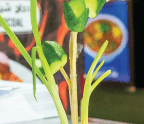One Sunday in February my mom telephones at eight in the morning to remind me that the bishop of Maryland is coming to Saint James at Lafayette Square, the African American Episcopal church where I was baptized and confirmed. There will be a single service at nine thirty. I debate the shower and then don the uniform that hangs on the back of the chair: pants and a sweater with a shirt inside it. My boy Nathaniel rises easily, despite having even less reason to be keen than I had at his age. In my high school class there were a dozen regulars; younger children were taught in the basement of the church, and the upper grades were instructed in a row house on Lafayette Avenue, on the border of Sandtown. Today, he is often the lone Sunday school student in his grade. Most of the time, he sits by my side for the service.
My younger son, Mitchell, remained with his mother in Georgia when I returned to Baltimore with Nathaniel after our divorce. Our new life is in a stone cottage in Homeland, one of the city’s prestige neighborhoods, which was carved out of the estate of a slaveholding family named Perine in 1922 by the Roland Park Company. Homeland’s quarter-acre lots and neo-Georgian houses were near the top of the market even before the company fortified the neighborhood with racially exclusive covenants. My son, studying at the Jesuit high school I attended thirty-five years ago at the dawn of racial integration for my family, lives near white classmates he has known since middle school, and is connected to extracurricular life in a way that I had half desired but had not imagined possible for myself. He casually accompanies young women who are not African American to weekend events, which often require being chauffeured from a pre-party to a dance, and even to an after-party in a hotel ballroom with a DJ and games involving glow sticks. And where in my experience tobacco, beer, and wine were always in a trunk or a pack, his cohort seems in loose confederation with every “mothers against” group.
A couple of times a year I load up my station wagon and take him to clean the street outside the church. Perhaps, as a resident of Homeland, I notice the litter more now? I am not sure that what I am feeling could be called survivor’s guilt, since my current assignment is not so secure. I strive to donate to the church a tenth of my income, which is used to run the building, the


